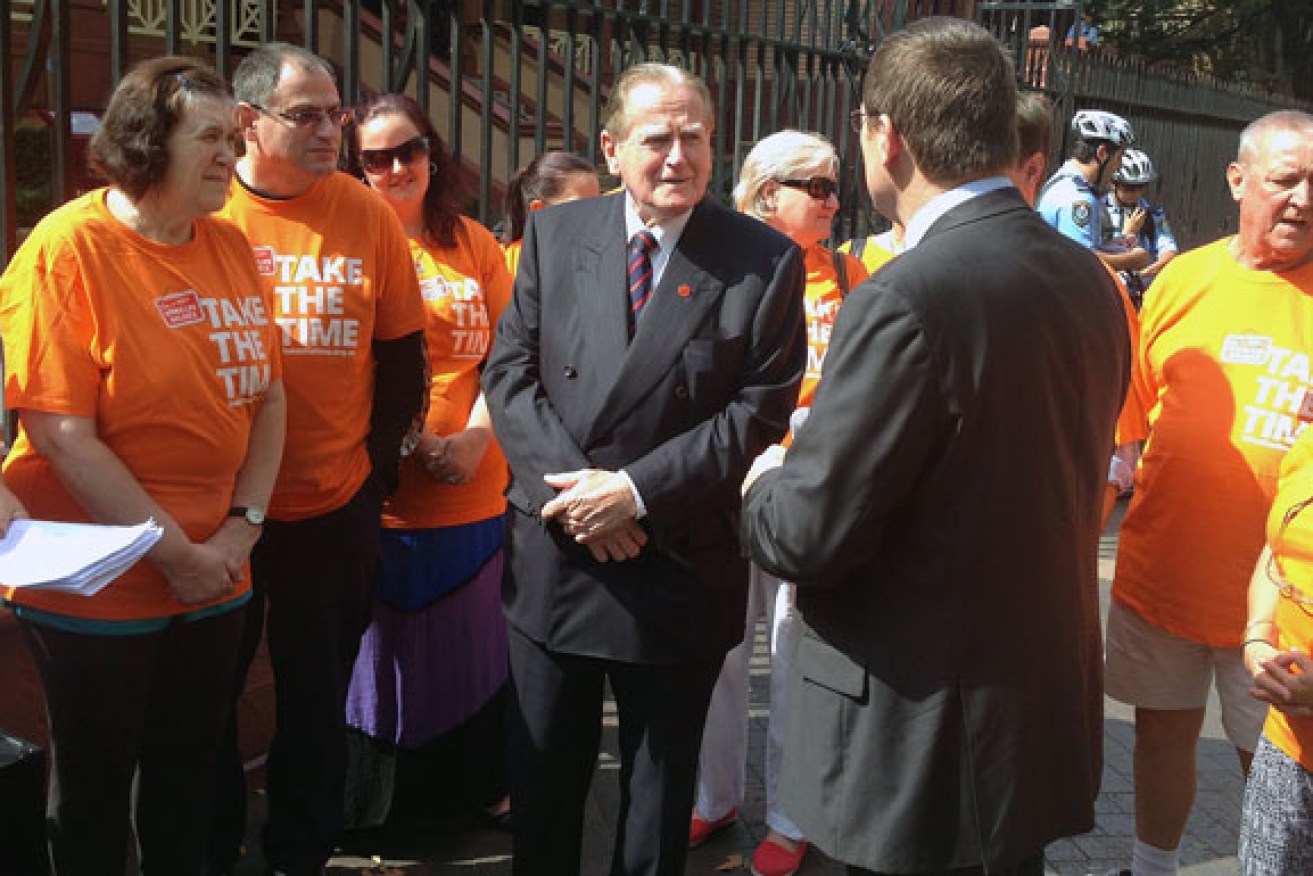Upper houses to dance to micro party tunes


AAP
Voters are turning away from established major parties all over the country – and with the Queensland election called for January 31 and New South Wales also heading to the polls, micro parties are making their pitch for the balance of power.
One such voter, Queenslander “Benji”, says: “I just hope there’s a decent independant (sic) I can vote for in my electorate – neither or the majors appeals to me.
“I live in hope that both majors realise that nepotism, lack of accountability, and lying are what turns the majority of us off their parties.”
• Jobs at centre of Queensland election
Predictions of Queensland’s result vary but the Liberal National government would have to lose 29 seats to lose office.
Despite this Premier Campbell Newman has not ruled out losing government to Labor if micro parties also make gains.
But the voting trend towards the simple messages of the micros can lead to unexpected results, helped on by complex preference flows, and it’s worth serious consideration before voters head into the booths.
While some, like the Christian Democratic Party, Family First, the Sex Party and Shooters and Fishers, have been household names for about a decade or more they are often untested in parliament; others with their thin policy lists don’t give a specific indication of all their intentions.
Micro parties generally don’t have the numbers to get their own legislation through – but they can block bills.
Their power is in amendments, negotiating deals with major parties and wedging them with public commentary.
Policies are a guide to where micros will support government initiatives but micros will inevitably have to decide on legislation that they haven’t stated a position on.
But a review of some parties’ past performances shows they have strayed from their presumptive mandates – voters should be aware of how an elected MP could use their balance of power vote in parliament.

Christian Democrat MP Reverend Fred Nile outside NSW Parliament. Photo: AAP
For instance, Fred Nile, the leader of the NSW Christian Democratic Party, is known among commentators for using his party’s vote on issues he has not stated a position on to seek populist outcomes, the latest being his support of Premier Mike Baird’s plan to privatise 49 per cent of the power grid in exchange for a light rail to Newcastle.
Family First in South Australia, famously biblical in its agenda, has weighed in on Aboriginal Native Title. According to its policy document it believes the system should be normalised to the Torrens Land Title system, which is the same system of ownership for all land in Australia.

Sex Party founder Fiona Patten. Photo: AAP
The Sex Party has won a seat for the first time in Victoria, putting Fiona Patten into parliament. While she hasn’t had enough time to show her strategy she has indicated that she will horse-trade on government election commitments that may require her vote.
Victoria’s Labor government wants to trial medical marijuana but Ms Patten wants the trial extended to include a wider range of cannabis-based medicines.
“It will help so few people, it’s just not worth it,” she said.
In Federal Parliament Jacquie Lambie, who left the Palmer United Party late last year, has vowed to vote against all government legislation until a better pay deal for the armed services is offered – while it was not one of her campaign policies it was also an unexpected move by the Liberals to offer an effective pay cut to the military.
The Shooters and Fishers Party have recently snagged two seats in Victoria but in NSW they have held sway on the cross benches for nine years. While rights for shooters and fishers is still their focus, they have widened their agenda like banning contentious ethics classes in public schools and stopping injecting rooms in Sydney’s King’s Cross.
University of NSW politics lecturer Mark Rolfe said parties with small profiles act to “continue a partisan fight” and seek political alliances, and in the case of the shooters “having Alan Jones talk you up is good publicity”, which is why they have weighed in on other issues.
“They would be supporting the local timber industry simply because the Greens would hate it,” he said.
Political researcher Ian Watson analysed electoral data from 1998 and 2013 and concluded that parties on the right of politics battle other parties on the right, and the left battles the left.
“The major schisms have been between parties which courted the votes of the most progressive respondents (the Australian Democrats and then the Greens) and those which catered to the sentiments of the most conservative (One Nation and then Palmer United),” he wrote.








